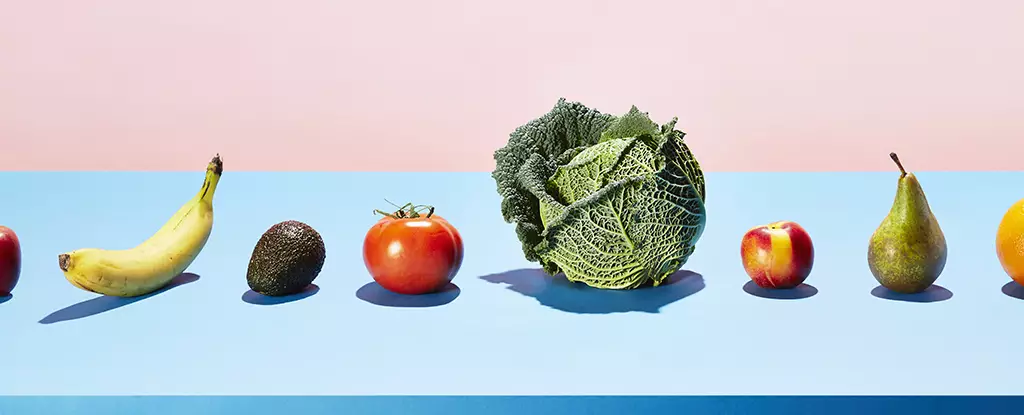Recent research has indicated a potential relationship between the consumption of fruits and vegetables and the risk of depression, particularly in adults over the age of 45. A comprehensive study involving twins from various countries, including the US, Australia, Denmark, and Sweden, sheds light on this significant connection. The unique nature of twin studies allows scientists to control for genetic similarities and environmental factors, leading to more reliable conclusions. This article aims to delve deeper into the findings of this study, exploring how boosting fruit and vegetable intake may play a crucial role in mental health.
Conducted by a team of researchers from the University of New South Wales (UNSW), the study involved analyzing survey data from 3,483 participants aged 45 and older. The researchers maintained a rigorous methodology by utilizing twin pairs, whose shared genetics and upbringing offered a distinct advantage in examining health disparities, specifically concerning symptoms of depression.
The findings demonstrated a notable difference in depressive symptoms among groups differentiated by their dietary habits. Participants with a higher intake of fruits and vegetables—averaging 2.1 and 2.0 servings daily, respectively—exhibited fewer symptoms of depression compared to those consuming significantly lower amounts (0.3 and 0.5 servings). While the correlation between vegetable intake and depression was more ambiguous, the general trend suggested that individuals consuming more fresh produce reported better mental health outcomes.
Importantly, the study also highlighted that most participants fell short of the World Health Organization’s (WHO) recommended intake of at least five servings of fruits and vegetables daily. This finding is critical, as it raises questions about the potential impact on mental well-being if dietary habits were improved to meet these guidelines.
The premise that a diet rich in fruits and vegetables can lower the risk of depression is not new; earlier research has linked dietary patterns with mental health outcomes. However, the strength of this study lies in its design—by focusing on twins, the researchers could eliminate many confounding variables. As geneticist Karen Mather from UNSW points out, the twin design helps mitigate the influence of socioeconomic status and other early-life factors that may skew results.
While the research does not definitively establish causation—given that physical activity levels, which could influence mental health, were not included in the analysis—it builds upon existing evidence advocating for healthier dietary choices in mitigating depression risk.
One of the notable aspects of this study is its focus on an older demographic, where depression rates are significantly higher. Matison emphasizes that there is still uncertainty about how much mental health could improve if individuals increased their intake to recommended levels. Recognizing this gap in knowledge invites further exploration into how targeted dietary interventions could benefit mental health, especially in older adults at risk for depressive disorders.
The findings serve not only as an encouragement for individuals but also as a directive for health policymakers. The compelling data underscores the importance of nutritional education and access to fresh produce. By promoting programs that increase fruit and vegetable intake, healthcare systems could potentially alleviate mental health issues in the aging population.
The link between diet and mental health continues to gain traction, and this twin-study emphasizes the protective association between higher fruit and vegetable consumption and a reduction in depressive symptoms. While more research is needed to explore the nuances of this relationship fully, the findings present a strong argument for dietary improvements as a straightforward approach to enhancing mental health in adults over 45. As dietary habits evolve, so too may the mental well-being of individuals, illustrating that small lifestyle changes can yield significant benefits.


Leave a Reply